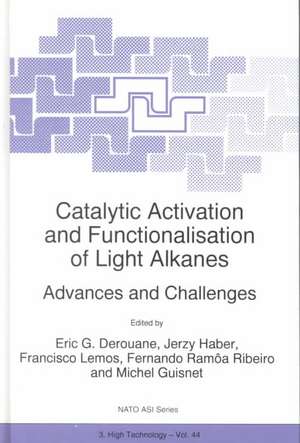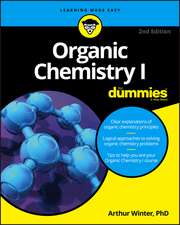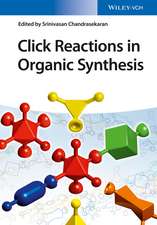Catalytic Activation and Functionalisation of Light Alkanes: Advances and Challenges: NATO Science Partnership Subseries: 3, cartea 44
Editat de E.G. Derouane, Jerzy Haber, Francisco Lemos, Fernando Ramôa Ribeiro, Michel Guisneten Limba Engleză Hardback – 28 feb 1998
Audience: Newcomers and senior researchers in the field of alkane activation. The mixed theoretical and practical approach will be of interest to researchers and industrialists alike.
| Toate formatele și edițiile | Preț | Express |
|---|---|---|
| Paperback (1) | 1226.73 lei 6-8 săpt. | |
| SPRINGER NETHERLANDS – 15 dec 2010 | 1226.73 lei 6-8 săpt. | |
| Hardback (1) | 1233.06 lei 6-8 săpt. | |
| SPRINGER NETHERLANDS – 28 feb 1998 | 1233.06 lei 6-8 săpt. |
Din seria NATO Science Partnership Subseries: 3
- 24%
 Preț: 1567.19 lei
Preț: 1567.19 lei - 18%
 Preț: 1992.08 lei
Preț: 1992.08 lei -
 Preț: 393.13 lei
Preț: 393.13 lei -
 Preț: 390.63 lei
Preț: 390.63 lei - 18%
 Preț: 1849.41 lei
Preț: 1849.41 lei -
 Preț: 407.19 lei
Preț: 407.19 lei - 18%
 Preț: 1228.96 lei
Preț: 1228.96 lei - 18%
 Preț: 1843.73 lei
Preț: 1843.73 lei - 15%
 Preț: 642.51 lei
Preț: 642.51 lei -
 Preț: 402.76 lei
Preț: 402.76 lei - 18%
 Preț: 1829.86 lei
Preț: 1829.86 lei -
 Preț: 379.48 lei
Preț: 379.48 lei - 18%
 Preț: 1224.54 lei
Preț: 1224.54 lei -
 Preț: 401.42 lei
Preț: 401.42 lei - 18%
 Preț: 1841.68 lei
Preț: 1841.68 lei -
 Preț: 391.99 lei
Preț: 391.99 lei - 18%
 Preț: 1234.46 lei
Preț: 1234.46 lei -
 Preț: 405.28 lei
Preț: 405.28 lei -
 Preț: 396.62 lei
Preț: 396.62 lei - 18%
 Preț: 1226.73 lei
Preț: 1226.73 lei - 18%
 Preț: 1233.52 lei
Preț: 1233.52 lei - 18%
 Preț: 1228.62 lei
Preț: 1228.62 lei - 5%
 Preț: 377.52 lei
Preț: 377.52 lei - 18%
 Preț: 1830.49 lei
Preț: 1830.49 lei - 20%
 Preț: 336.21 lei
Preț: 336.21 lei - 18%
 Preț: 1225.48 lei
Preț: 1225.48 lei -
 Preț: 397.38 lei
Preț: 397.38 lei - 18%
 Preț: 1830.65 lei
Preț: 1830.65 lei - 15%
 Preț: 650.55 lei
Preț: 650.55 lei - 5%
 Preț: 1416.66 lei
Preț: 1416.66 lei
Preț: 1233.06 lei
Preț vechi: 1503.73 lei
-18% Nou
Puncte Express: 1850
Preț estimativ în valută:
235.94€ • 247.01$ • 195.23£
235.94€ • 247.01$ • 195.23£
Carte tipărită la comandă
Livrare economică 05-19 aprilie
Preluare comenzi: 021 569.72.76
Specificații
ISBN-13: 9780792349600
ISBN-10: 0792349601
Pagini: 492
Ilustrații: X, 492 p.
Dimensiuni: 155 x 235 x 29 mm
Greutate: 0.89 kg
Ediția:1998
Editura: SPRINGER NETHERLANDS
Colecția Springer
Seria NATO Science Partnership Subseries: 3
Locul publicării:Dordrecht, Netherlands
ISBN-10: 0792349601
Pagini: 492
Ilustrații: X, 492 p.
Dimensiuni: 155 x 235 x 29 mm
Greutate: 0.89 kg
Ediția:1998
Editura: SPRINGER NETHERLANDS
Colecția Springer
Seria NATO Science Partnership Subseries: 3
Locul publicării:Dordrecht, Netherlands
Public țintă
ResearchCuprins
Upgrading of C1 and C2 Hydrocarbons.- Transformation of Alkanes on Solid Acid and Bifunctional Catalysts.- Activation of Light Alkanes: Past and Present.- Superacid Catalysed Protolytic Activation, H/D Exchange and Oxidation of Small Alkanes.- New Processes for Carbon-Carbon Bond Activation Catalysed by Oxyde Supported Surface Organometallic Complexes.- Selective Oxidation of Light Alkanes.- Theoretical Basis of the Activation of C-H Bond.- An Introduction to Molecular Heterogeneous Catalysis.- Mono- and Binuclear Iron Complexes in Zeolites and Mesoporous Oxides as Biomimetic Alkan Oxidation Catalysts.- Biocatalytic, Biomimetic and Suprabiotic Oxidation of Alkanes.- High Yield, Low Temperature Oxidation of Methane to Methanol.- Functionalization of Light Alkanes Catalyzed by Heteropoly Compounds.- Alkane Activation by Pseudo-Metals.- Molecular Chemistry of Alkane Activation: Formation and Reaction of Chx Species on Metal Surfaces.- The Effect of Acid Sites in Skeletal Isomerization of n-Butenes over Ferrierites and CoA1PO-11.- Oxidative Dehydrogenation of Propane on Large-Pore Zeolites.- Oxidative Coupling of Methane over Sodium-Manganese Catalysts in the Presence of HCl.- Mono- and Binuclear Iron Complexes in Zeolites, Clays and Mesoporous Oxides as Biomimetic Catalysts.- Mixed M2O3.Zro2.SO42- (M=Ga, In, T1) Catalysts: Preparation, Characterisation and Catalytic Behaviour in Dehyroisomerisation of n-Hexane.- The Selective Oxidation of n-Butane to Maleic Anhydride; Development of Silica- and Titania Supported V-P-O Catalysts.- The Effect of Cobalt Doping on the Structural Transformation Sequences Occurring during the Activation of Vanadium Phosphorus Oxide Catalysts.- On the Active Sites for Selective Ammoxidation of Propane on Vanadium Containing Oxide Catalysts.- Theoretical Modelling of Propane Partial Oxidation over Titanium Silicalites.- Chlorinated Alumina Catalyst for Isobutane / 2-Butene Alkylation: Influence of Added Noble Metals.- Report of the Workshop on Challenges and Opportunities in Light Alkane Activation.- List of Participants.- Author Index.
Recenzii
`... an important contribution towards the integration of different approaches to catalysis, as advocated in the Workshop report, and is sure to find its way on to the shelves of many laboratories in which catalysis research is being pursued or considered.'
Applied Organometallic Chemistry, 13 (1999)
Applied Organometallic Chemistry, 13 (1999)









